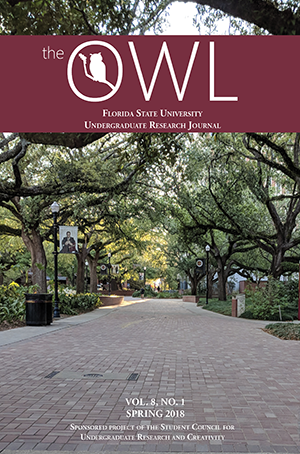Implications of Family Planning on Child Labor: A Ghanaian Case Study
Keywords:
Human Rights, Child Labor, Family PlanningAbstract
In the project “Implications of Family Planning on Child Labor: A Ghanaian case study,” undergraduate researchers Leah Singleton and Taegan Dennis explore how local stakeholders in Senya-Beraku, Ghana understand the role of family planning in reducing poverty and child labor within their community.
Researchers conducted twenty-two interviews in Ghana for this project in collaboration with a Ghanaian NGO, Patriots Ghana. Interviewers recruited local elite interviewees through snowball sampling. Interviews asked questions regarding perceived access to contraception and household decision-making on childhood education. All interviews were semi-structured and were conducted in Summer 2017 with translators provided by the host NGO.
Researchers transcribed all but one interview from recordings and crosschecked against handwritten notes before developing a coding matrix to run descriptive statistical analysis through SAS. Initial analysis suggests that 75% of respondents believe contraception is highly accessible in this village. However, 82% went on to say that community perceptions of contraception are mixed or negative. Further, 81% of respondents identify a relationship between large family and prevalence of child labor. In conclusion, this research delineates the necessity of further education on both family planning and child labor in Central Region, Ghana.
References
Canagarajah, Sudharshan & Helena Skyt Nielsen. “Child Labor in Africa: A Comparative Study.” The Annals of the American Academy of Political and Social Science 575 (2001): 71-91. JSTOR. http://www.jstor.org.proxy.fsu.edu/stable/1049181
“Child Labor.” International Labor Organization, 8 December 8, 2017. http://libguides.ilo.org/child-labour-en
Ghana Statistical Service. Demographic and Health Survey 2014. 2015. 86. https://dhsprogram.com/pubs/pdf/FR307/FR307.pdf
Ghana Statistical Service. Ghana Poverty Mapping Report. 2015. ix.
http://www.statsghana.gov.gh/docfiles/publications/POVERTY%20MAP%20FOR%20GHANA-05102015.pdf
Ghana Statistical Service. Ghana Living Standards Survey Round 6 (GLSS 6): Child Labor Report. 2013.
http://www.statsghana.gov.gh/docfiles/glss6/GLSS6_Child%20Labour%20Report.pdf
Gyimah, Stephen Obeng, et al. “Religion, Contraception, and Method Choice of Married Women
in Ghana.” Journal of Religion and Health 51, no. 4 (2012): 1371. JSTOR. www.jstor.org/stable/23352790
ICF Macro. Trends in Demographic, Family Planning, and Health Indicators in Ghana, 1960-2008: Trend Analysis of Demographic and Health Surveys Data. 2010. 15. https://dhsprogram.com/pubs/pdf/TR6/TR6.pdf
Laird, Siobhan. “The 1998 Children's Act: Problems of Enforcement in Ghana.” The British Journal of Social Work 32, no. 7 (2002): 893-905. JSTOR. http://www.jstor.org/stable/2371656.
Longwe, Abiba & Jeroen Smits. “The Impact of Family Planning on Primary School Enrolment in Sub-national Areas within 25 African Countries.” African Journal of Reproductive Health / La Revue Africaine de la Santé Reproductive 17.2 (2013). 26. JSTOR, http://www.jstor.org/stable/23485918
Staveteig, Sarah. Understanding Unmet Need in Ghana: Results from a Follow-up Study to the 2014 Ghana Demographic and Health Survey. USAID 2016. 3. https://www.dhsprogram.com/pubs/pdf/QRS20/QRS20.pdf.
Teye, Joseph Kofi. “Economic Value of Children and Fertility Preferences in a Fishing
Community in Ghana.” GeoJournal 78, no. 4 (2013) 701. JSTOR, www.jstor.org/stable/42002540.
Thakurata, Indrajit & Errol D’Souza. “Child Labour and Human Capital in Developing Countries—A multi-period stochastic model.” Economic Modeling (2007) EBSCO. DOI: 10.1016/j.econmod.2017.09.006
Webbink, Ellen, Jeroen Smits, & Eelke de Jong. “Hidden Child Labour: Determinants of Housework and Fmamily Work of Children in 13 Developing Countries.” World Development 40.3 (2012): 639. Science Direct.
Downloads
Published
Issue
Section
License
All works published in The Owl are published under a Creative Commons Attribution, Non-Commercial, Share-Alike (CC-BY-NC-SA) license. The author retains copyright.

